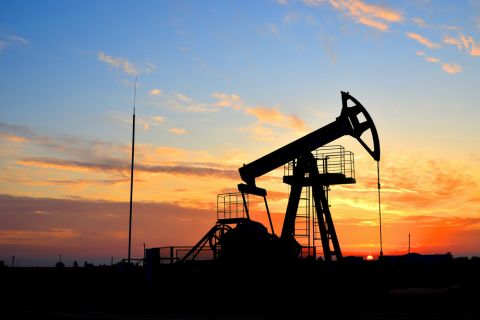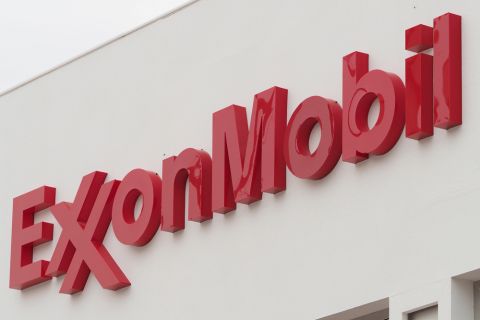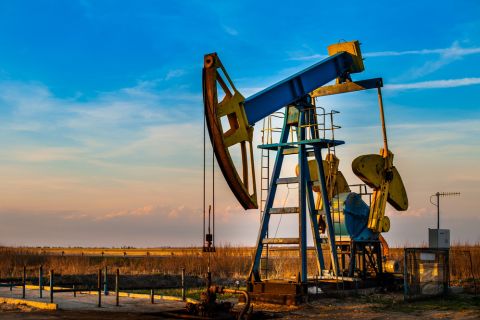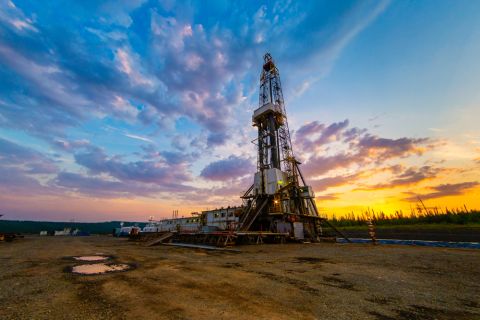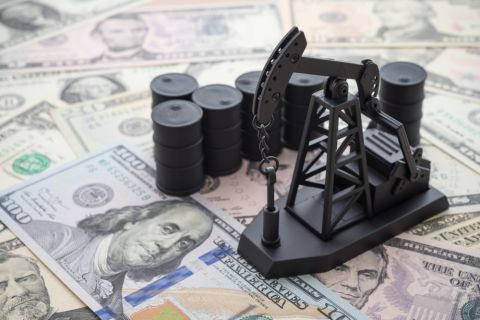As the UAE's oil and gas production industry developed during the past 40 years, related industries have been benefactors. Locally established and managed transportation, fabrication, port, engineering, construction and oilfield service firms have strengthened their presence on the back of increasing needs for local content according to stringent regulations. To operate in Abu Dhabi, foreign companies must have a local partner. While long criticized, this has also allowed unprecedented development of indigenous competencies and has spread diffused industrial knowledge and wealth. Transportation of liquefied natural gas (LNG), crude oil, liquid petroleum gas (LPG) and sulfur is today provided by home-grown companies like NGSCO or tanker operator Adnatco. While NGSCO's business relies completely on Abu Dhabi gas producer Adgas, Adnatco has expanded across the region, and is expecting more activity in the transportation of dry materials, notably building on the forthcoming expansion of petrochemical activities in the UAE and in the Gulf area. The company today owns and operates nine crude product, chemical and bunkering vessels and works closely with international oil companies, transporting their crude and product cargoes all over the world. As illustrated by the transportation example, a number of local players are offering credible and knowledgeable oil and gas service alternatives to international sourcing options. In the UAE, the difficulties of operating a multinational workforce that may comprise a wide variety of nationalities-from Bangladeshi and Pakistani to Filipinos-also accounts for the necessity of working hand-in-hand with companies that have proven experience in dealing with foreign workers. From a population of approximately 3 million people, only 30% are native and from the onset of its economic development in the 1960s, the UAE has relied on large numbers of foreign workers, at first to explore and produce oil and gas but also to work on construction sites, roads and industrial units. Today, tapping into the human resources of the Asian subcontinent, the UAE nationals remain a minority within their own country. This allows the country to be a very inexpensive operating base, featuring among the lowest wages in the world, a lack of unions and virtually limitless workforce availability. A number of companies have therefore developed successful operations benefiting from all these factors to become service providers across the oil and gas industry chain. Trading agencies have flourished, at first simply importing and selling European and North American equipment, but increasingly stepping up the associated services to sell these goods later on. Nowadays, most of the leading trading companies have capable oil and gas divisions with personnel that have received comprehensive training from the equipment-makers and are capable of answering customer queries, and offer competitive and local after-sale services. The next natural stage is the development of in-house oil-services capabilities, and stepping up the value ladder: from the sale of logging equipment to the development of an in-house well-logging division, able to contract services with local upstream operators. Local companies have expanded their reach and managed to develop fully fledged capabilities. Other local companies were directly established as oil-service companies and gradually expanded their activities, thanks to successful projects obtained despite the strong presence of the market leaders from North America and Europe. Today, a few local operators are increasingly operating outside their original sphere of activity. Companies like Al Mansoori Specialized Engineering take jobs all over the world, on the back of business relationships developed with early customers, notably international upstream majors that have had operations in the UAE from the early days of oil and gas production. This allows UAE companies to dispatch teams way beyond their natural area of operation, from Iran, Libya, India through to the Caspian region. In the case of Al Mansoori, the logging division started operating in Azerbaijan before even conducting work within its "natural" area of activity. Nabil Al Alawi, Al Mansoori Specialized Engineering managing director, is willing to develop relationships with cutting-edge mid-tier service companies. "The multinationals don't need anybody as they have been in the market for many years, but there are a lot of companies in the U.S. and Canada that have great products and technologies and would be interested in penetrating local markets but crucially lack market knowledge. "We bring to the table our marketing know-how and they bring their technology." The company has already struck deals with such companies, bringing their seismic well drilling, ROVs and other technological products to the regional markets. Due to the stringent legislation in place in Abu Dhabi, local companies have also been able to develop joint-ventures with leaders from the global stage. Marjan Oilfield Services is, for instance, allied with Halliburton for its logging operations through the newly established Emirates Logging Co., allowing the Houston giant to return to a market it left years ago after a series of failed attempts to grab market share in Abu Dhabi. Today coming back, using the privileged vehicle provided by a well-established and recognized local operator, Halliburton benefits from market position, knowledge and connections that were established years ago by the teams of Marjan, itself a part of the diversified Al Fahim group of companies. Abu Dhabi law that obliges foreign companies to work with local partners sometimes creates unexpected synergies. The Adceco group, comprised of construction companies, fabricators and engineering operators, has developed a number of competitive advantages by hosting a number of companies gathered in one industrial compound. The IMCC group, associated with Adceco, is allying Gulf Piping Co, a pipe-making company, International Metal & Construction Co., a fabricator, Gulf Specialized Mechanical & Engineering Services Co and a coating company. This creates a strong cluster that became a force to reckon with in FPSO (floating production, storage and offloading) topsides, turrets, single-point buoys, production units and rig topsides. Tapping the competitive advantages of the country, service operators of the UAE have expanded their reach and started serving foreign markets. Thanks to a privileged geographical location, the UAE is a convenient base to service a region that holds more than 60% of the world's oil reserves, and a sizeable part of global gas reserves. From Iran to Oman, Saudi Arabia, Yemen, India, Pakistan or even Indonesia, markets can be served efficiently from the Persian Gulf. The UAE is the most stable base in the region, as the country has displayed strong political and economic fundamentals, allowing foreign investment to rain down on the country. With the opening of major production opportunities in Iran and Qatar, the UAE experience in serving oil and gas upstream developments is a precious asset. Abu Dhabi and Dubai, although part of the same country, are now competing to attract foreign oil and gas investment. Abu Dhabi, with years of experience and a strong production base, also benefits from its own financial center and from strong governmental support. Yet, restrictive legislation on business establishment and the somewhat closed dimension of its oil and gas sector, which is dominated by the upstream state-owned operator and all powerful Adnoc, may put off a number of midsize service players willing to touch base there. Yet facilities exist to facilitate their establishment and smooth market entry. Part of the almighty Adnoc group of companies, Esnaad is acting as a service provider as well as a logistic center for the industry. Established from the January 2003 merger of Abu Dhabi Drilling Chemicals & Products Ltd. (Addcap) and National Marine Services Co. (NMS), Esnaad offers a number of services to the upstream sector as well as to service companies-from safety and supply standby vessels to offshore operations to the provision of drilling chemicals, port operations and waste management. Besides these services, Esnaad owns a large stretch of land in the Mussafah industrial area, featuring warehouses, jetties, dry and liquid storages and fully equipped office facilities. The site already hosts a number of companies from the sector and is looking at providing these facilities to more newcomers willing to establish businesses in the region, even offering to cater for personnel needs. Darwish Al Qubaisi, Esnaad general manager, says "When providing services to clients in the oil and gas industry, you have to provide services from A to Z. By merging our marine service with the drilling and chemical activity, we were able to add marine transportation with 24 vessels and on-site supply with storage and a full chain of other services like bunkering, handling, offices and our own manufacturing capabilities for drilling mud and specialty chemicals. "The keyword for us is partnership. This applies to our clients, who are treated as partners, but also to some of our suppliers with whom we want to develop stronger relationships based on competence sharing for the benefit of both parties. Today we are looking at bringing new companies to the market, from the Gulf of Mexico or elsewhere. These companies differ from the giant service operators by being very dynamic and ambitious and we are interested in having them here." Already providing integrated services to oil and gas operators from its base in Abu Dhabi, Esnaad's mission may be overshadowed by the emirate's proclaimed intention to establish a fully fledged base for the global oil and gas industry. Sheikh Hamed Bin Zayed Al Nahyan, chairman of Abu Dhabi Economic Forum, recently announced that the emirate would set up a free zone to cater to the needs of oil and gas operators, from upstream companies to service players. On the other hand, Dubai aims to attract foreign operators too. Dubai can already boast a number of successes. Benefiting from the city's increasing recognition as the financial and business capital of the Gulf region and despite a declining oil production and a lack of reserves, Dubai has achieved explosive growth thanks to its trading tradition and the successful completion of grandiose real estate and tourism landmark projects. It has also been chosen by a large number of oil and gas operators happy to benefit from the facilities offered by the emirate, always willing to attract foreign investment and to facilitate business by all means. Dubai, already host to international banks, media companies and industrial groups, has also welcomed fabricators that have established their base in Dubai to provide repair and servicing operations to both local and international customers. Lamprell, a well-known operator that has established its name in the servicing and upgrading of offshore rigs and jack-ups, is conducting most of its business from Sharjah, north of Dubai, for the rig-refurbishment business, and from the Jebel Ali Free Zone for its FPSO, platform and buoy construction operations. Peter Whitbread, Lamprell chief executive, says, "This is the best place for our type of activities, enjoying a very liberal taxation regime, but also benefiting from a very supportive environment from local authorities for business development. The workforce is very competent, with a strong component from the subcontinent. It is also infinitely cheaper than in Singapore or indeed, Europe." Also hosted in the Jebel Ali free zone, Dubai's Oilfields Supply Center Ltd. (OSC) has successfully positioned itself as the destination of choice for foreign companies, from upstream operators to oilfield service providers. OSC was established in Dubai in 1962 and located on some 600,000 square meters of land of which about 20% is built up (warehouses, workshops, offices etc.) to accommodate OSC's own operations together with those of internationally recognized service companies. The company has been instrumental to international oil companies (IOCs) like Total and Shell in the region, and most notably in Iran. While hosting an increasing number of foreign clients in Dubai, the company has also successfully developed four bases in Iran, catering to IOCs working on this peculiar, yet ever-more promising market. OSC took a strong stance on the Iranian market. John R. Ellis, OSC general manager, says, "Our company was very proactive with the potential projects and we have developed our physical capabilities in Iran taking a longer-term view of the opportunities in the country." An example is OSC's 10-year facilities lease at Bandar Iman Khomeini with the Iranian Ports & Shipping Organization. OSC was subsequently able to attract Shell for its Soroosh/Nowrooz project. OSC now also has facilities at Bushehr, Kharg Island and Kish Island in addition to a head office in Tehran. Facilities offered by the likes of OSC are earmarked for further regional developments and Iran has lately offered interesting developments, like the $2-billion contract signed by Japanese companies to develop the giant Azadegan oil field. At times when many eyes now also turn to Iraq, the examples of Dubai's OSC or Abu Dhabi's Esnaad could be emulated there to provide strong bases for the reconstruction of the Iraqi industry. Asked about how OSC considers market opportunities in Iraq, Ellis says, "Extremely carefully and with the appropriate amount of due diligence to the continuing security issues within the country. There is certainly a bit of a dichotomy currently as Iraq needs to reconstruct its oil and gas infrastructure to support the country's reconstruction as a whole, but this will be very difficult to undertake against a back-drop of serious security concerns." He adds that OSC is currently in talks with potential Iraqi partners to develop the infrastructure necessary to support initially the southern fields and is optimistic these will lead to the development of an onshore logistics base on a smaller scale to that enjoyed by OSC in Jebel Ali. UAE-based service companies are looking at the challenges ahead with confidence. Expanding the geographical scope of operations is clearly a major opportunity. For the service providers of the region, opportunities in the Caspian, Pakistan, India or even as far as Russia's Sakhalin could be tapped. The reputation of the UAE as a safe and reliable base for business is now firmly established and regional opportunities abound. Following in the footsteps of big U.S. service companies, one may expect smaller mid-tier operators operating in the Gulf of Mexico or elsewhere in North America to join the fray and benefit from the facilities established from which to operate, and from the many welcoming potential partners willing to take their technical edges to local markets. Ellis advises, "Dubai is probably as safe an environment as Houston, Lafayette or New York and is centrally located to be able to support the Middle East. The Middle East continues to need the involvement of U.S. companies and associated technology, and there are already many service companies in Dubai. Look to the success of these companies and make the next move."
Recommended Reading
What's Affecting Oil Prices This Week? (Jan. 29, 2024)
2024-01-29 - For the upcoming week, Stratas Advisors forecast that increase in oil prices will be moderated likely due to the U.S. being cautious in response to the recent attack on U.S. troops.
Exxon’s Payara Hits 220,000 bbl/d Ceiling in Just Three Months
2024-02-05 - ExxonMobil Corp.’s third development offshore Guyana in the Stabroek Block — the Payara project— reached its nameplate production capacity of 220,000 bbl/d in January 2024, less than three months after commencing production and ahead of schedule.
What's Affecting Oil Prices This Week? (Feb. 5, 2024)
2024-02-05 - Stratas Advisors says the U.S.’ response (so far) to the recent attack on U.S. troops has been measured without direct confrontation of Iran, which reduces the possibility of oil flows being disrupted.
Tinker Associates CEO on Why US Won’t Lead on Oil, Gas
2024-02-13 - The U.S. will not lead crude oil and natural gas production as the shale curve flattens, Tinker Energy Associates CEO Scott Tinker told Hart Energy on the sidelines of NAPE in Houston.
What's Affecting Oil Prices This Week? (March 18, 2024)
2024-03-18 - On average, Stratas Advisors predicts that supply will be at a deficit of 840,000 bbl/d during 2024.

